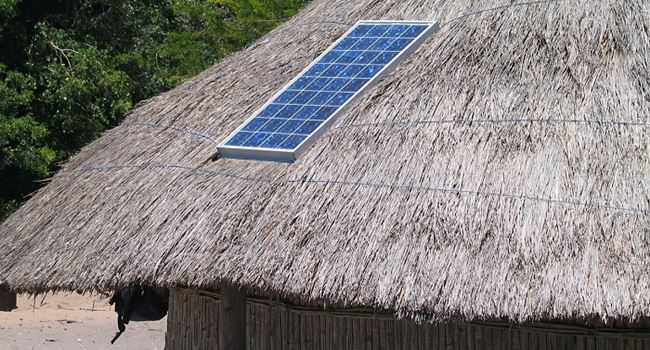Business
Nigerian govt enters pact with seven firms for rural electrification

The Nigerian government Wednesday entered into a pact with seven private power firms through the signing of Output-Based Fund (OBF) grant memorandum of understanding for the rollout of solar systems for rural electrification.
The solar solution providers will also provide electricity to micro, small and medium enterprises situated in locations classified as unserved or under-served as far as power supply is concerned.
According to PricewaterhouseCoopers, only one in every five Nigerians have access to grid electricity, and those that have are frequently at the mercy of perennial blackouts. That means 164.800 million people or 80 per cent of Nigeria’s 206 million citizens do not have access to the national grid.
Taking stock of the financial implication of power shortages on business in Nigeria in July, the World Bank put the economic cost of regular blackouts in the country at $29 billion (more than N11.250 trillion), equivalent to 2 per cent of the gross domestic product of Africa’s biggest economy.
The Rural Electrification Agency (REA) said the deployment of the solar home systems would boost the population of citizens having access to solar power.
“The objective of the stand-alone solar home system component is to help millions of under-served households and MSMEs access better energy services at lower costs,” Ahmad Salihijo, managing director of REA, told newsmen in Abuja on Wednesday.
Read also: Minister of Power suspends MD Rural Electrification Agency
He disclosed that the cost was cheaper than the price of stand-alone solar systems offered by the private market.
The seven firms selected for the OBF grant deal for rural electrification are Arnergy Solar Limited, Central Electric and Utilities Consortium, Cloud Energy Photo Electric Limited, JV Solar Integrated Power Solutions Limited, Leadsun Technologies Company Limited, Privida Power Limited, and Sosai Renewables Solar Electric.
“These companies forecast to sell approximately 100,000 systems by the end of 2021. As you can see, we, the Rural Electrification Agency and Nigeria Electrification Project, are well on our way to achieving our universal electrification target by 2023,” said Ifunanya Nwandu-Dozie, the component head, Solar Home Systems (SHS).
The OBF for rural electrification was signed in April 2019 and so far the SHS team, in collaboration with the Nigerian government, has signed pacts with 12 firms.
Join the conversation
Support Ripples Nigeria, hold up solutions journalism
Balanced, fearless journalism driven by data comes at huge financial costs.
As a media platform, we hold leadership accountable and will not trade the right to press freedom and free speech for a piece of cake.
If you like what we do, and are ready to uphold solutions journalism, kindly donate to the Ripples Nigeria cause.
Your support would help to ensure that citizens and institutions continue to have free access to credible and reliable information for societal development.
























